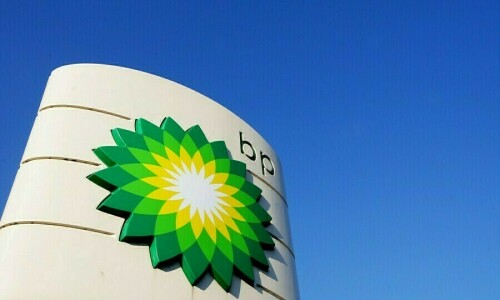BP’s Net Profit Plummets, Strategy Chief Departs
BP announced a significant 48% drop in net profit, falling to $1.4 billion, which was steeper than anticipated. This downturn is attributed to diminished gas trading and refining performance. Concurrently, the company revealed that its strategy head would be leaving, a move aimed at boosting investor confidence.
CEO Murray Auchincloss, facing demands to enhance profitability and reduce expenditures, has outlined strategies to divest $20 billion in assets by 2027. Spending and share repurchase initiatives have also been curtailed.
The energy giant, based in Britain, has reversed its course on earlier plans to aggressively cut hydrocarbon output in favor of expanding its low-carbon footprint. This shift was initially championed by Giulia Chierchia, the strategy and sustainability chief, who will be resigning on June 1.
Sources indicate that Elliott Investment Management, a U.S.-based fund manager, advocated for a change in strategy leadership to drive higher free cash flow through more substantial cuts in both spending and operational costs.
Since the company’s push into renewable energy ventures under former CEO Bernard Looney, who brought Chierchia into the fold, BP’s stock performance has underperformed compared to its competitors.
Following Auchincloss’s strategic adjustments in February, BP’s stock value has decreased by 20%. In contrast, rivals Shell and Exxon experienced drops of 7.5% and 1.8%, respectively.
BP shares experienced a decline of about 2.8% at 1404 GMT, while a broader index of energy firms saw a lesser decrease of 0.6%.
BP reported an underlying replacement cost profit, also known as adjusted net income, of $1.38 billion for the first quarter. This figure is below the $1.53 billion that analysts anticipated, according to a company-compiled poll.
This represents a decline from the $2.7 billion recorded in the previous year.
The profitability of its gas and low-carbon segment decreased by approximately 40%, affected by reduced trading activity and decreased production following asset disposals.
The customers and products division experienced a downturn of around 47%.
BP anticipates conducting extensive refinery maintenance during the second quarter, which is likely to result in lower production volumes.
Refining margins for BP averaged $15.20 per barrel in the first quarter, down from $20.60 in the previous year, amid a general decrease in refining profitability across the industry.
The company is executing a $750 million share buyback for the quarter, which is at the lower end of its projected range and marks a significant reduction from the $7.1 billion in buybacks conducted last year.
Kate Thomson, the Finance Chief, stated that BP would not provide specific guidance on the magnitude of future buybacks.
BP has revised its forecast for asset sales this year upward to $3-$4 billion, from the previous estimate of $3 billion. The company has also lowered its spending outlook for this year by $500 million, setting it at $14.5 billion. It reaffirmed its target range of $13-$15 billion for the upcoming years through 2027.
During the January-March quarter, global benchmark Brent crude prices averaged around $75 per barrel, compared to approximately $87 in the corresponding period last year.
Earlier this month, crude prices plummeted following the U.S. President’s announcement of tariffs on trading partners. Brent is currently trading around $66 a barrel.
Auchincloss noted that in the event of persistently lower prices, deflation would likely become apparent across their capital plans. He mentioned roughly $2.5 billion in further capital flexibility, if needed.
He added that exercising this option for further spending cuts would affect the company’s long-term growth.
Elliott has increased its stake in BP to just over 5%, which positions it between top shareholders BlackRock and Vanguard.



Comments (0)
No comments yet. Be the first to comment!
Leave a Comment